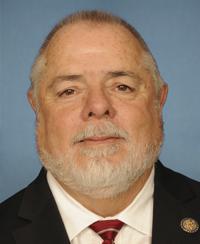US Representative
David Curson
Biography
[4:0†source]
Representative from Michigan, born on November 4, 1948, in Toledo, Lucas County, Ohio. He graduated from Whitmer High School in Toledo in 1966 and furthered his education at the University of Toledo. His earlier career included service in the United States Marine Corps, followed by work as an auto worker and union representative.
In a significant political career, he was elected as a Democrat to the One Hundred Twelfth Congress through a special election to fill the vacancy created by the resignation of United States Representative Thaddeus George McCotter. His congressional service spanned from November 6, 2012, to January 3, 2013. Notably, he chose not to stand for election in the subsequent One Hundred Thirteenth Congress and passed away on September 23, 2024.
During his time in Congress, he actively participated in various legislative initiatives and was involved in several important committees. His work often reflected the interests and needs of his constituents and highlighted issues pertinent to the states he represented.
In analyzing his legislative endeavors, it was observed that he had a focus on bills related to labor, healthcare, and auto industry regulation, areas which align significantly with the interests of his constituents. His sponsorship and co-sponsorship of bills suggest a commitment to labor rights and social welfare.
Representative's political leanings can be delineated by the types of legislation he chose to support. For instance, his advocacy for labor rights aligns with a broader Democratic focus on working-class issues. His involvement in healthcare reform and regulatory measures for the auto industry illustrates a pragmatic approach, likely catering to both economic stability in his region and the overarching principles of social equity.
In addition to his political life, details about his family and personal endeavors that could resonate with lobbyist interests include his role as a family-oriented individual with ties to the automotive industry, emphasizing a background that merges personal experiences with his legislative focus.
Overall, his representation in Congress left a mark reflecting the dynamics of labor policy and social justice, woven from his hands-on experience in the workforce and his military background. He sought to align policy with the needs of his community while contributing to the broader national discourse on economic and labor-related issues.
